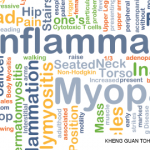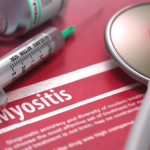“Our findings will enable researchers to correctly interpret serologies acquired by research testing using the Euroimmun platform,” write the authors. “Our study highlights the importance of carefully defined cutoffs for assigning positive antibody status. That is, different autoantibody specificities may require different thresholds to define a positive result.”
However, Dr. Mecoli emphasizes that despite their limitations, the panels are valuable for patients and physicians. “Healthcare providers should be aware of the benefits and limitations of various myositis autoantibody panels,” says Dr. Mecoli. “Line blot assays are an incredibly valuable tool to assay multiple antibody specificities and can be easily employed in different settings. They can provide comprehensive and systematic screening while being both cost and time efficient.”
Some of the available panels have limitations, with some specificities being more accurate than others. Although the current study compares a clinical test with a research test, Dr. Mecoli says some of these research techniques and panels will likely soon make their way into clinical practice in the U.S. Therefore, it’s important to understand their strengths and weaknesses.
Dr. Mecoli’s team is currently working to compare currently available clinical tests to better understand when low-positive results are false positives and when negative results may be false negatives.
Lara C. Pullen, PhD, is a medical writer based in the Chicago area.
Reference
- Mecoli CA, Casal-Dominguez M, Pak K, et al. Myositis autoantibodies: A comparison of results from the Oklahoma Medical Research Foundation Myositis Panel to the Euroimmun Research Line Blot. Arthritis Rheumatol. 2019 Aug 20. doi: 10.1002/art.41088. [Epub ahead of print]



